More accessible research partnerships lead to greater medical progress
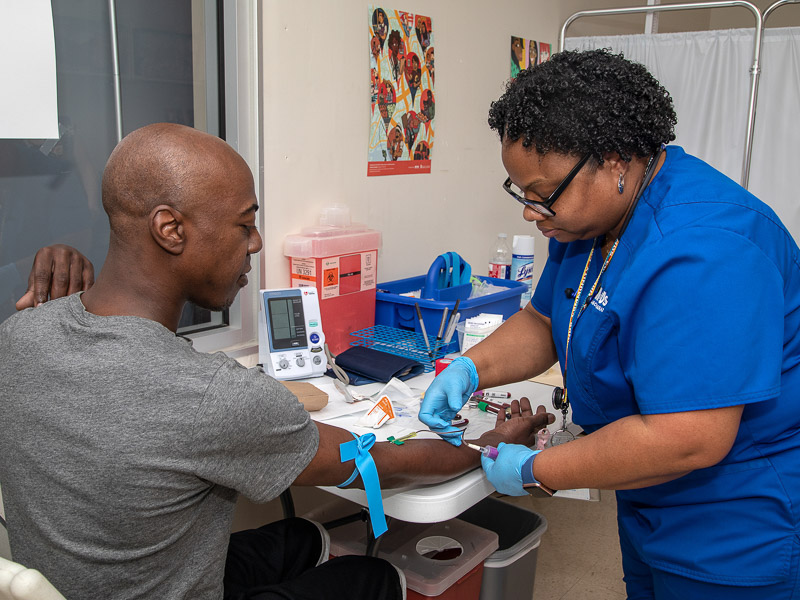
USA Today published survey results in 2018 stating that 77 percent of Americans are “willing to participate in medical research,” but 67 percent don’t know where to start. Likewise, a 2013 poll from Research America reported only 22 percent of Americans say a health care professional has ever talked to them about medical research.
Recent results from a study in JAMA Network Open concur, finding that 85 percent of people think clinical research is “very important to the discovery and development of new medicines,” but 59 percent “could not name a place where studies were conducted.”
For anyone reading this among that 59 percent, here’s a place you can name: The University of Mississippi Medical Center. With a broad range of health specialists, scientists and large patient population, academic medical centers like UMMC are the driving force behind health advances.
In fiscal year 2018, UMMC had 294 active clinical trials in multiple subspecialties, from pediatrics and geriatrics to cardiology and oncology. The one thing they have in common: they need research partners – human participants – to be successful.
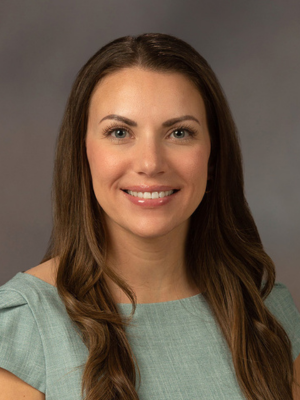
UMMC is working to raise public awareness of clinical trials and the many benefits of becoming a research partner, said Leslie Musshafen, executive director of research at UMMC.
“Sometimes the public is unaware of the benefits clinical trials may offer, or worse, have a negative connotation, that the research is being done to them,” Musshafen said. “Those participating in clinical trials at the Medical Center are truly our partners in improving health and medical care, often for themselves but also for future generations. They have a voice and it is our job to listen.”
That means encouraging potential research partners to ask lots of questions before registering for a study and throughout the study process.
“Some people will ask if they’re going to be a guinea pig, and I say ‘no, you’re not a guinea pig, you’re a human,’” said Andrew Majeste, a clinical research nurse with The MIND Center and the Department of Neurology. “And that’s a good opportunity to explain the phases of research, from the pre-clinical laboratory experiments to the earlier human trials.”
Clinical research can involve a controlled study of experimental medical treatment, such as a drug, a device or a procedure. Other studies involve registries, where investigators track patient outcomes as they go through the treatment or management options of a participant’s choice. An Institutional Review Board reviews each study before it can commence, and continues to monitor it, to ensure that benefits are greater than the risks.
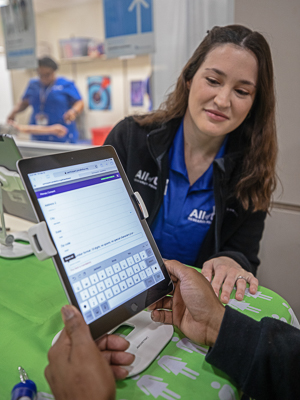
The Office of Research and Sponsored Programs keeps a list of active UMMC research studies on its website, including contact information for study leaders and some eligibility requirements for joining a study. On this page, individuals can also submit a general interest form, indicating what kinds of studies they may want to participate in. This builds a pool of potential participants for future studies. People who aren’t current UMMC patients can request information and participate in studies as well.
“Someone can go to the website to look for active studies they might qualify, but not find any actively recruiting that match their particular condition or interest,” Musshafen said. “By registering to become a Research Partner and letting us know their areas of interest, one of our study team members may contact them when a clinical trial matching their criteria becomes available at UMMC in the future.”
However, no one is obligated to participate in any study at any time.
“When someone is dealing with a medical condition, they can experience a loss of control,” said Susan Hetzel, a clinical research nurse in the Department of Neurology. “That’s not the case in clinical research. We are here to support the decisions they make.”
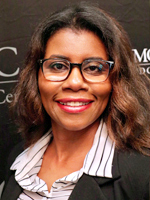
“My goal is to engage, educate and empower people,” said Stacee Naylor, Director of Clinical Research Operations for The MIND Center. “We want to provide people with enough knowledge so that they can make informed decisions.”
This is also the case for studies that investigate disease prevention, which rely on healthy participants who, unlike some drug or device trial participants, will not receive any direct benefit.
“Participants are volunteers. We need them in order to conduct studies, not the other way around,” Naylor said.
At UMMC, Majeste said doctors identify potential trial participants from their patient population. That can be easy if the physician is also the primary investigator of the study. Physicians can refer patients to trials in other specialty areas, but they need to be aware of the opportunities first.
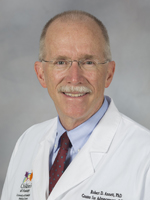
“The last thing busy physicians think about when caring for their patients is clinical trial recruitment,” said Dr. Robert Annett, professor and vice chair of research in the Department of Pediatrics. “Studies suggest that when a provider understands ongoing studies and recognizes when they might be of interest of patients, studies can boost participation significantly.
“Before approaching a patient for a study, a physician should ask themselves, ‘Is participating in my patient’s best interest? Is this something they could benefit from?’” Annett said.
“Some patients and families benefit from research studies by receiving a higher level of clinical oversight related to that particular disease, and others participate out of a sense of altruism because the findings of these studies benefit the next generation of children,” Annett said. “The more we understand about diseases, the more likely we can generalize the results of clinical trials.”
In order to understand these diseases, UMMC needs research partners and resources for clinical trials. In Summer 2019, the Medical Center plans to open a 22-bed inpatient clinical trials unit on the seventh floor of the adult hospital.
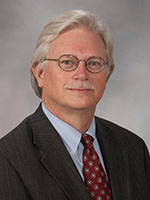
Dr. Richard Summers, associate vice chancellor for research, recently promoted several clinical research-related goals for 2019 including creating an Office of Clinical Trials, implementing a research management system aligned with Epic, and expanding research pharmacy operations.
“UMMC has a strong basic science legacy. We want to continue that tradition while building on the translation of those discoveries to the patient population we serve. ,” Musshafen said. “Through clinical trials, we are able to bring new treatments to people who otherwise cannot access or afford them and move science forward. As an academic medical center, we have an obligation to provide clinical trials to our community.”


